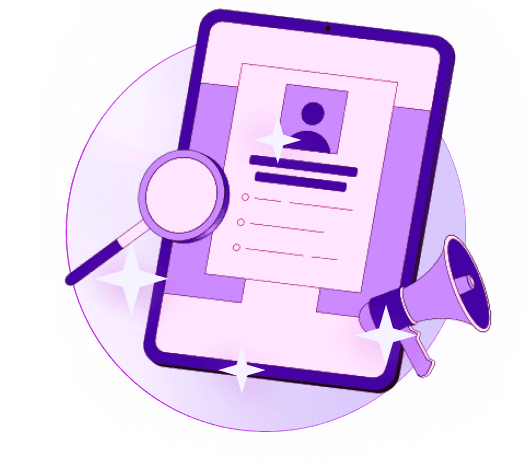Blogs
Articles


Using AI in Sales: How Teams Boost Productivity and Close More Deals
Here's a surprising fact - sales professionals spend just 25% of their time actually selling to customers.
Numbers tell the story clearly. Sales teams that make use of AI automation achieve 30% better win rates. Their revenue per rep jumps up to 30%. This success comes from AI-powered sales assistants taking care of mundane work like lead scoring and data analysis. Sales professionals can then focus on what really counts - building customer relationships and closing deals.
This piece explores how AI revolutionizes productivity throughout the sales funnel. You'll discover practical strategies to implement and scale AI capabilities while measuring your investment returns.
Let's dive in if you want to cut down paperwork time and focus more on selling.
Why AI is Changing the Sales Game
Sales has changed radically. Companies must now use real-time insights to stay competitive and get results.
The change from manual to intelligent workflows
Sales professionals no longer rely on gut instinct, cold calls, and manual processes. Predictive analytics, automation, and conversational AI now revolutionize customer interactions and revenue generation. Companies must adapt or risk falling behind competitors who use these innovative tools to sell smarter and faster.
Traditional revenue operations roles have evolved into go-to-market engineers. These specialists focus on internal automation and streamline processes through technical solutions. AI tools help identify new leads and buyer groups. Teams come better prepared to meetings, which saves time and reduces manual work.
How AI fits into modern sales strategies
AI takes care of routine tasks so sellers can spend quality time with customers. Companies that use AI in their sales processes see a average 10-15% increase in sales revenue. AI benefits show up throughout the sales process:
AI reduces sales cycles by up to 30% and increases lead conversion rates by 25%
Teams using AI automation achieve over 30% improvement in win rates
AI helps teams target valuable leads and produce better outcomes
AI makes lead acquisition and nurturing smoother while keeping the human element that customers need.
Why traditional automation isn't enough
Poor processes become automated poor processes. Companies often automate inefficiencies instead of eliminating them when they skip process redesign. The most important gains come from reimagining sales processes rather than automating existing ones.
Traditional methods create longer sales cycles and need constant information sharing. Manual approaches lack the informed decision-making needed for tailored outreach. The most successful organizations combine AI with process redesign, clean data, and focused execution.
AI Across the Sales Funnel
AI across your sales funnel boosts productivity at every customer touchpoint. Artificial intelligence makes processes more efficient from the original contact to post-sale support that once took up valuable selling time.
Lead generation and qualification
AI has transformed how teams identify and prioritize prospects. AI tools analyze big amounts of customer data through advanced algorithms to identify patterns and predict outcomes. Sales teams can now make informed decisions instead of just relying on instinct. The results speak for themselves teams using AI outreach methods see revenue grow up to 1.3 times compared to those without AI.
Machine learning algorithms help qualify leads by ranking prospects based on their conversion likelihood. Teams can focus on high-value opportunities with this predictive approach. AI-powered lead scoring systems look at past data and user interactions to spot leads most likely to convert.
HubSpot's AI lead scoring system has helped tech startups boost their lead conversion rates by 25%. Einstein from Salesforce looks at customer data to predict buying behaviors, which has helped marketing agencies increase sales productivity by 30%.
Personalized outreach and follow-ups
Today's buyers expect personalized experiences. Research shows 71% want customized interactions and 76% feel frustrated when personalization lacks. AI helps craft messages that match prospect behavior and past actions.
AI email tools create custom messages by looking at user priorities, browsing patterns, and purchase history. These tools also pick the best time to send emails to boost engagement. Persana's AI looks at prospect data from many sources to create tailored content that makes reply rates jump by 300% and doubles open rates.
Sales forecasting and pipeline visibility
AI makes forecasts more accurate. Some organizations achieve up to 98% precision much better than the 78% industry average. Gartner's research shows 67% of sales operations leaders find it harder to create accurate forecasts now than three years ago, showing why AI help matters.
Smart pipeline management gives teams live insights into deal health. AI predicts deal outcomes with amazing accuracy. Outreach's Smart Deal Assist predicts deal closure correctly 81% of the time and suggests ways to keep opportunities moving forward.
Post-sale engagement and retention
AI adds value after the sale by watching product usage patterns, support ticket sentiment, and company growth signs. Customer success teams can spot risks or growth opportunities early.
AI platforms catch warning signs like reduced product usage or negative support ticket sentiment. Teams can step in before customers think about leaving. AI chatbots also provide round-the-clock support with instant answers to questions. This keeps customers happy and lets human agents tackle complex issues.
Implementing AI for Sales Productivity
Success with AI in sales depends more on execution than technology adoption. Companies achieve outstanding results through a methodical implementation plan that builds momentum with quick wins.
Start with high-impact use cases
AI implementations work best when they target specific challenges instead of broad goals. Your sales team might face difficulties with prospecting, lead qualification, or personalized outreach - these areas typically show quick results. Companies should pick one or two areas at the start of their sales lifecycle. These targeted pilots create immediate impact and help build the team's confidence in AI.
Clean and connect your sales data
AI needs clean, connected data to provide useful insights. Poor data quality costs businesses up to 25% of potential revenue. The first step is to remove outdated and incorrect information, which can make up 80% of the data. The next step involves standardizing data management practices and connecting essential systems. Note that the data doesn't need to be perfect - it just needs to be "good enough" to support the original AI deployment.
Build trust with AI-powered insights
Trust influences 90% of buyers' decisions when selecting vendors. A successful AI rollout needs to be transparent about how it improves customer experiences. AI tools help sales representatives ask better questions and solve specific problems through analysis of previous interactions. Companies that successfully implemented AI-powered coaching saw their buyer's confidence grow by 65%.
Train teams to adopt new workflows
Teams adopt AI faster when it becomes part of their existing tools and processes. The best approach is to provide tailored training that shows immediate benefits. Teams should provide regular feedback to make the implementation better. Good coaching leads to 30% higher buyer engagement, and teams see their new leads, win rates, and average deal size grow by 25-40%.
Scaling AI for Long-Term Sales Growth
Organizations need a strategic scaling approach to move beyond their first AI experiments. Research shows that 90% of generative AI pilots fail to reach production. A well-laid-out roadmap helps avoid this common trap.
Move from pilots to full-scale deployment
The most successful companies look at AI implementation from all angles. Real benefits come when companies combine generative and agentic AI with regular automation, process improvements, and clean data. Your best bet is to narrow down the scope. Quick wins come from focusing on specific high-impact parts of the sales process rather than trying everything at once.
Use generative AI to discover new markets
Generative AI creates amazing opportunities to grow your business. The technology watches organizational patterns and predicts what customers want, helping sellers make perfect pitches at just the right time. It also studies entire industries—from supply-demand patterns to competitive landscapes which shapes how companies price, offer, and sell their products.
Check out Persana to learn how AI personalization tools can increase reply rates by 300%.
Integrate AI into your sales operating model
Sales organizations must change their operating models as AI capabilities grow. Old approaches with short-term quota motivation don't work anymore. Companies that give their sales teams AI tools now see 10-15% better efficiency. McKinsey's research suggests generative AI could add $0.80-1.20 trillion in productivity across sales and marketing.
Measure ROI and continuously optimize
Tracking both early signs and financial results shows AI's true value. While 49% of CIOs say proving AI's worth is their biggest challenge, you can measure results effectively with a two-part approach. Track trending ROI through progress markers like productivity gains and realized ROI through financial outcomes like revenue growth. Start with internal measurements, then use external standards to check your assumptions.
Conclusion
AI has revolutionized sales teams' operations by letting them focus on meaningful customer interactions instead of administrative work. Sales professionals can now put their talents into what really counts - building relationships and closing deals - rather than getting buried in paperwork and manual tasks.
Numbers show how AI affects the entire sales funnel. Teams using these technologies close deals faster, convert more leads, and grow their revenue significantly. AI-powered personalization meets today's buyer's needs while giving sales reps practical insights for every prospect interaction.
Making AI work requires a smart approach. Teams should pinpoint specific problems rather than trying to change everything at once. Clean data forms the base for AI to work well, though you don't need perfect data to see results right away. Teams adopt AI more readily when there's trust both inside the company and with customers, and proper training helps them use new tools better.
Growth over time needs scaling beyond the original pilots. Companies should look at AI implementation as a complete package that combines generative capabilities with better processes and data handling. This integrated approach opens new markets and streamlines team operations.
Tracking results plays a significant role in showing AI's value. Looking at both early signs and financial outcomes gives a full picture of the investment returns. Companies that track these metrics well can fine-tune their approach, which will give AI the biggest effect possible.
Sales organizations that welcome AI as a strategic tool will own the future. Those who adapt now will build more productive teams, stronger customer relationships, and maybe even close more deals. The question isn't whether AI fits in your sales strategy anymore - it's how fast you can implement it to stay ahead of competitors who already have.
Key Takeaways
AI transforms sales by freeing teams from administrative tasks to focus on relationship-building and deal-closing, delivering measurable productivity gains across the entire sales funnel.
• AI dramatically boosts sales performance: Teams using AI see 60% increase in rep capacity, 30% improvement in win rates, and 10-15% revenue growth consistently.
• Start with high-impact, focused use cases: Begin with specific pain points like lead qualification or personalized outreach rather than broad transformation for faster wins.
• Clean data is essential for AI success: Poor data quality costs up to 25% of potential revenue, so prioritize data cleanup and system integration before deployment.
• Scale strategically beyond pilots: Move from experimentation to full deployment by combining AI with process redesign and comprehensive measurement of both productivity and financial ROI.
• Personalization drives modern buyer engagement: AI-powered personalization can boost reply rates by 300% and double open rates, meeting the 71% of buyers who demand customized interactions.


Create Your Free Persana Account Today
Join 5000+ GTM leaders who are using Persana for their outbound needs.
How Persana increases your sales results
One of the most effective ways to ensure sales cycle consistency is by using AI-driven automation. A solution like Persana, and its AI SDR - Nia, helps you streamline significant parts of your sales process, including prospecting, outreach personalization, and follow-up.

